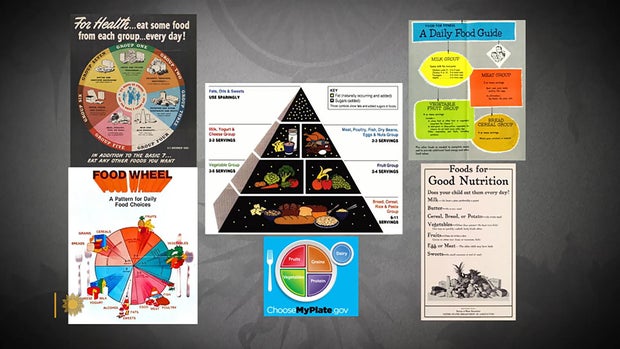CBS News
Study identifies 14 risk factors for dementia, including 2 new ones. Here’s what you can do about them.

Nearly 7 million Americans have Alzheimer’s disease, a specific type of dementia, and a new study is highlighting two new risk factors to be aware of.
In the study, published Wednesday in The Lancet, researchers said considerable new evidence supports adding vision loss and high cholesterol to the list of potentially modifiable risk factors for developing dementia, a group of brain function-altering conditions.
The authors note the importance of the findings for possible prevention as the number of people living with dementia is set to increase worldwide.
“Policy makers should prioritize resources to enable risk reduction to prevent or delay dementia and interventions to improve symptoms and life for people with dementia and their families,” the authors write.
Vision loss and high cholesterol join 12 previously known risk factors for the disease, including:
Luckily, a lifestyle that’s good for the rest of your body is also good for your brain.
Research suggests maintaining a healthy diet, keeping the mind and body active, and avoiding smoking and excess alcohol may help improve your odds of developing dementia.
“The prevention approach should be directed at addressing risk factor levels at an early stage and continuing throughout the life course,” the authors add, who also included specific prevention guidance for each identified risk factor.
For the two latest, the authors suggest detecting and treating high cholesterol from midlife and making vision loss screening and treatment accessible.
For hearing loss, the authors suggest making hearing aids accessible for people with hearing loss and decreasing harmful noise exposure to reduce hearing loss. To prevent head injuries, wear helmets in contact sports and on bicycles.
“Ensure good quality education is available for all and encourage cognitively stimulating activities in midlife to protect cognition,” the prevention guidance continued. “Prioritize age-friendly and supportive community environments and housing and reduce social isolation by facilitating participation in activities and living with others.”
Air pollution is considered a lesser known risk factor, but one that’s becoming increasingly relevant as wildfires and poor air quality make headlines.
In a study last year, researchers estimated nearly 188,000 dementia cases in the U.S. each year may have been caused by air pollution.
More recently, a study presented at the annual Alzheimer’s Association International Conference on Monday found exposure to wildfire smoke could be particularly harmful to brain health and may raise the risk of being diagnosed with dementia. The study is currently undergoing peer review.
“Wildfires can be very disruptive to daily routines, and so it’s possible that the stress, the anxiety, the disruption of day to day life, could unmask an underlying dementia and somebody who has not been diagnosed,” a lead researcher of the study Holly Elser told CBS News.
Rebecca Edelmayer, the vice president of scientific engagement for the Alzheimer’s Association, told CBS News the findings are an “important piece of the puzzle” in understanding the types of risk factors that may impact brain health and cognitive decline.
“What this research is building upon is that they’re now focusing on a very particular kind of contributor to that air pollution, that being wildfire,” Edelmayer said.
CBS News
A study to devise nutritional guidance just for you

It’s been said the best meals come from the heart, not from a recipe book. But at this USDA kitchen, there’s no pinch of this, dash of that, no dollops or smidgens of anything. Here, nutritionists in white coats painstakingly measure every single ingredient, down to the tenth of a gram.
Sheryn Stover is expected to eat every crumb of her pizza; any tiny morsels she does miss go back to the kitchen, where they’re scrutinized like evidence of some dietary crime.
Stover (or participant #8180, as she’s known) is one of some 10,000 volunteers enrolled in a $170 million nutrition study run by the National Institutes of Health. “At 78, not many people get to do studies that are going to affect a great amount of people, and I thought this was a great opportunity to do that,” she said.
CBS News
It’s called the Nutrition for Precision Health Study. “When I tell people about the study, the reaction usually is, ‘Oh, that’s so cool, can I do it?'” said coordinator Holly Nicastro.
She explained just what “precise” precisely means: “Precision nutrition means tailoring nutrition or dietary guidance to the individual.”
The government has long offered guidelines to help us eat better. In the 1940s we had the “Basic 7.” In the ’50s, the “Basic 4.” We’ve had the “Food Wheel,” the “Food Pyramid,” and currently, “My Plate.”
CBS News
They’re all well-intentioned, except they’re all based on averages – what works best for most people, most of the time. But according to Nicastro, there is no one best way to eat. “We know from virtually every nutrition study ever conducted, we have inner individual variability,” she said. “That means we have some people that are going to respond, and some people that aren’t. There’s no one-size-fits-all.”
The study’s participants, like Stover, are all being drawn from another NIH study program called All Of Us, a massive undertaking to create a database of at least a million people who are volunteering everything from their electronic health records to their DNA. It was from that All of Us research that Stover discovered she has the gene that makes some foods taste bitter, which could explain why she ate more of one kind of food than another.
Professor Sai Das, who oversees the study at Tufts University, says the goal of precision nutrition is to drill down even deeper into those individual differences. “We’re moving away from just saying everybody go do this, to being able to say, ‘Okay, if you have X, Y and Z characteristics, then you’re more likely to respond to a diet, and somebody else that has A, B and C characteristics will be responding to the diet differently,'” Das said.
It’s a big commitment for Stover, who is one of 150 people being paid to live at a handful of test sites around the country for six weeks – two weeks at a time. It’s so precise she can’t even go for a walk without a dietary chaperone. “Well, you could stop and buy candy … God forbid, you can’t do that!” she laughed.
While she’s here, everything from her resting metabolic rate, her body fat percentage, her bone mineral content, even the microbes in her gut (digested by a machine that essentially is a smart toilet paper reading device) are being analyzed for how hers may differ from someone else’s.
Nicastro said, “We really think that what’s going on in your poop is going to tell us a lot of information about your health and how you respond to food.”
CBS News
Stover says she doesn’t mind, except for the odd sounds the machine makes. While she is a live-in participant, thousands of others are participating from their homes, where electronic wearables track all kinds of health data, including special glasses that record everything they eat, activated when someone starts chewing. Artificial intelligence can then be used to determine not only which foods the person is eating, but how many calories are consumed.
This study is expected to be wrapped up by 2027, and because of it, we may indeed know not only to eat more fruits and vegetables, but what combination of foods is really best for us. The question that even Holly Nicastro can’t answer is, will we listen? “You can lead a horse to water; you can’t make them drink,” she said. “We can tailor the interventions all day. But one hypothesis I have is that if the guidance is tailored to the individual, it’s going to make that individual more likely to follow it, because this is for me, this was designed for me.”
For more info:
Story produced by Mark Hudspeth. Editor: Ed Givnish.
“Sunday Morning” 2024 “Food Issue” recipe index
Delicious menu suggestions from top chefs, cookbook authors, food writers, restaurateurs, and the editors of Food & Wine magazine.
CBS News
A new generation of shopping cart, with GPS and AI

Watch CBS News
Be the first to know
Get browser notifications for breaking news, live events, and exclusive reporting.
CBS News
“All hands on deck” for Idaho’s annual potato harvest

Watch CBS News
Be the first to know
Get browser notifications for breaking news, live events, and exclusive reporting.











